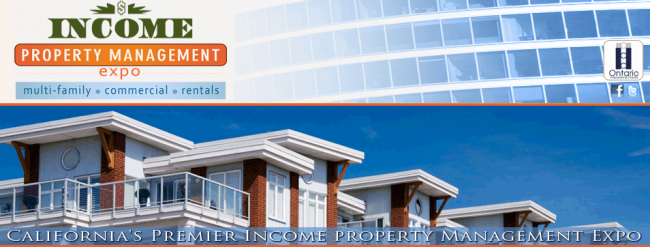Legal Corner – Q & A with Stephen C. Duringer
This article is presented in a general nature to address typical landlord tenant legal issues. Specific inquiries regarding a particular situation should be addressed to your attorney.
Question: My new tenants just moved in a month and a half ago. The lease requires that the tenant pays for all utilities, and must put the utilities in their own name prior to moving in. Well, I just received the electric bill, and it’s still in my name. I’m thinking about not paying it, just letting it get shut off. Maybe when the lights go out, they’ll take care of it. Can I do that?
Answer: No, you can’ t let the utilities be shut off. Your tenant’s actions are a breach of the rental agreement, and must be addressed in compliance with California law. You should immediately prepare and serve a Notice to Perform or Quit-Breach of Covenant notice. The notice should identify the specific breaches, the failure to place the electric utility in their own name, and their failure to pay the utility charges incurred since taking possession. The notice should be specific as to how they must cure the breach, namely, they must put the utilities in their name, and reimburse you for the amount of utility changes that have been billed and incurred post tenancy. Note that some jurisdictions may require that you include a statement identifying a witness who observed the breach, as well as the date and time of the breach. In such jurisdiction, you or your manager would suffice as the witness, and the breach would be considered ‘ongoing’ as it continues to occur. In the event of noncompliance, you would be entitled to file an unlawful detain action to recover possession of the premises. Rarely though is that necessary, as the vast majority of residents will immediately comply.
Question: I just put my single family house on the rental market, and have agreed to rent it to a nice family of four; mom, dad and two kids, two and five. The parents seem responsible enough and I’m sure they’ll make great tenants, but I am concerned because the house has a pool. Is there anything I can do to protect myself from liability should one of the children fall in and drown?
Answer: The short answer is yes. There are several measures you can, and should, take to protect yourself. First and foremost, ensure that the pool and the gate/enclosure conform to all state and local codes and ordinances. The gate should be self-latching, and should be checked to ensure that it closes properly. Review your insurance policy with your broker to ensure that your coverage is adequate; consider a commercial umbrella policy as well. Your broker can counsel you on coverage limits; consider $3,000,000 as a minimum. Finally, you should include as part of your rental documents an addendum to the lease in which the tenant acknowledges the dangers of the pool, agrees to ensure that all gates are kept closed, and agrees to periodically verify that the self-latching gate functions properly. Consider requiring that your tenants procure renters liability insurance as well. These requirements should be a part of your rental policies for a property with a pool, regardless of whether or not your tenants have children.
Question: Just opened up the mail, and what do you suppose was in it? A notice from my bank informing me that one of my tenant’s rent check was returned unpaid because he placed a stop payment on it. Imagine that, it’s now mid-month, no warning, no phone call, the deadbeat didn’t even have the courtesy of letting me know he was going to stop payment on his check. It kind of makes sense though, he asked a couple of weeks ago if I’d let him out of his lease early, guess his girlfriend has a nicer place and he wanted to move in with her. I called his phone number, got a recording saying that it had been disconnected. His cell phone works, got his voice mail, and left a message. I’m guessing that when I swing by later today, it’ll be empty. What do I do now? I don’t want to make any mistakes; can I just change the locks if he’s out?
Answer: You have a couple of issues that you need to resolve, first the issue of return of possession of the premises, and then, of course, getting you paid. If the tenant appears to have vacated when you visit the unit later today, then you must follow certain procedural rules before you simply change the locks. Ideally, you will be able to contact the tenant on his cell or at work. If you make contact, ask that the tenant confirm that he is out by faxing or emailing you written confirmation. If you are able to confirm that he has moved out, you will not have to follow the abandoned real property notice requirements, and will be able to retake possession immediately. If when you visit the unit, and find that it is vacant, and if the rent is due and unpaid for fourteen days, and the tenant has not voluntarily surrendered possession, then you must serve a written notice of Belief of Abandonment of Real Property. The notice can be posted on the premises and mailed by regular mail to the tenant’s last known address, your property. You must wait eighteen days before you retake possession. If the tenant does not reply, in writing, by informing you of his address for service of an unlawful detainer within eighteen days, then you may retake possession, and change the locks. Once you regain possession, prepare the security deposit disposition form. If he skipped mid lease, he will owe the balance of the term, or until you mitigate your damages by reletting the unit, whichever occurs first. Hang on to the tenant’s check that was returned by the bank. Stop payment orders are only effective for six months, unless renewed by the maker, which rarely happens. That means, in six months and a day, you can redeposit the check, and if there are sufficient funds, the check will clear.
Question: I’m looking at a single family residence to purchase. It’s a pocket listing, no signage, not on the MLS. The agent claims it’s a great deal because the seller needs cash quickly, wants a quick escrow, and is willing to let it go for under market. The only catch is, the tenant doesn’t know the house is for sale, and the owner doesn’t want the tenant to know. He says that when I close escrow, I can serve my own notice to have the tenant leave, but he doesn’t want the tenant getting nervous and moving out if the deal doesn’t go through. Seems like a really good deal, I know the house, I’ve peeked in the windows, and it’s in incredibly great shape. What am I missing, what can go wrong?
Answer: Lots. You have actual notice of a tenant in possession. That means that you are bound by whatever rental agreement, or contract, exists between the owner and the existing resident. The tenancy agreement may turn out to be a fixed term lease for a long period of time at less than market rent. The resident may have a lease with an option to purchase the house for a fixed sum, possibly less than what you are paying for it. There may be litigation between the parties relating to the premises, possibly mold or some other contamination issue that you may not be aware of. If the deal really is as described, then prepare a purchase agreement providing a due diligence period allowing you a brief time period to check title, condition and other issues. Once escrow is open, and you are satisfied with title, and the condition of the premises, contact the resident, confirm the terms of his tenancy, get a copy of his rental agreement, and prepare an estoppel certificate for the resident to sign affirming the tenancy agreement, amount of deposit, and affirming that he has no equitable or legal interest in the property.
 Stephen C. Duringer – The Duringer Law Group, PLC is one of the largest and most experienced landlord tenant law firms, has successfully handled over 200,000 evictions, and has collected over $90,000,000 in unpaid rent since 1988. The firm may be reached at 714.279.1100, toll free at 800.829.6994 or 877.387.4643.
Stephen C. Duringer – The Duringer Law Group, PLC is one of the largest and most experienced landlord tenant law firms, has successfully handled over 200,000 evictions, and has collected over $90,000,000 in unpaid rent since 1988. The firm may be reached at 714.279.1100, toll free at 800.829.6994 or 877.387.4643.
Visit www.DuringerLaw.com for more information and the locations of their six offices.












 @IPMExpo
@IPMExpo


 Have a well thought out plan to make sure your selections will last. Quality doesn’t always mean super expensive. Make a list of your “must-have” upgrades and devote ample room in your budget to those quality items. You can make cut backs on the “nice to have” items.
Have a well thought out plan to make sure your selections will last. Quality doesn’t always mean super expensive. Make a list of your “must-have” upgrades and devote ample room in your budget to those quality items. You can make cut backs on the “nice to have” items. Invest in flooring. Carpeting gets ruined very easily. Make your flooring last longer by installing a laminate floor. A good selection could be a distressed wood look. It’s in style and will hide wear and tear.
Invest in flooring. Carpeting gets ruined very easily. Make your flooring last longer by installing a laminate floor. A good selection could be a distressed wood look. It’s in style and will hide wear and tear. Granite for less. Yes, you can offer granite-like countertops. My favorite sources for countertop makeovers are Giani Granite (
Granite for less. Yes, you can offer granite-like countertops. My favorite sources for countertop makeovers are Giani Granite (
 I don’t know a property manager who doesn’t grapple with parking issues. At best, they’re a hassle. At worst, they threaten resident safety, satisfaction and retention. They can even send you to court.
I don’t know a property manager who doesn’t grapple with parking issues. At best, they’re a hassle. At worst, they threaten resident safety, satisfaction and retention. They can even send you to court.




 Five: Look for solutions
Five: Look for solutions
